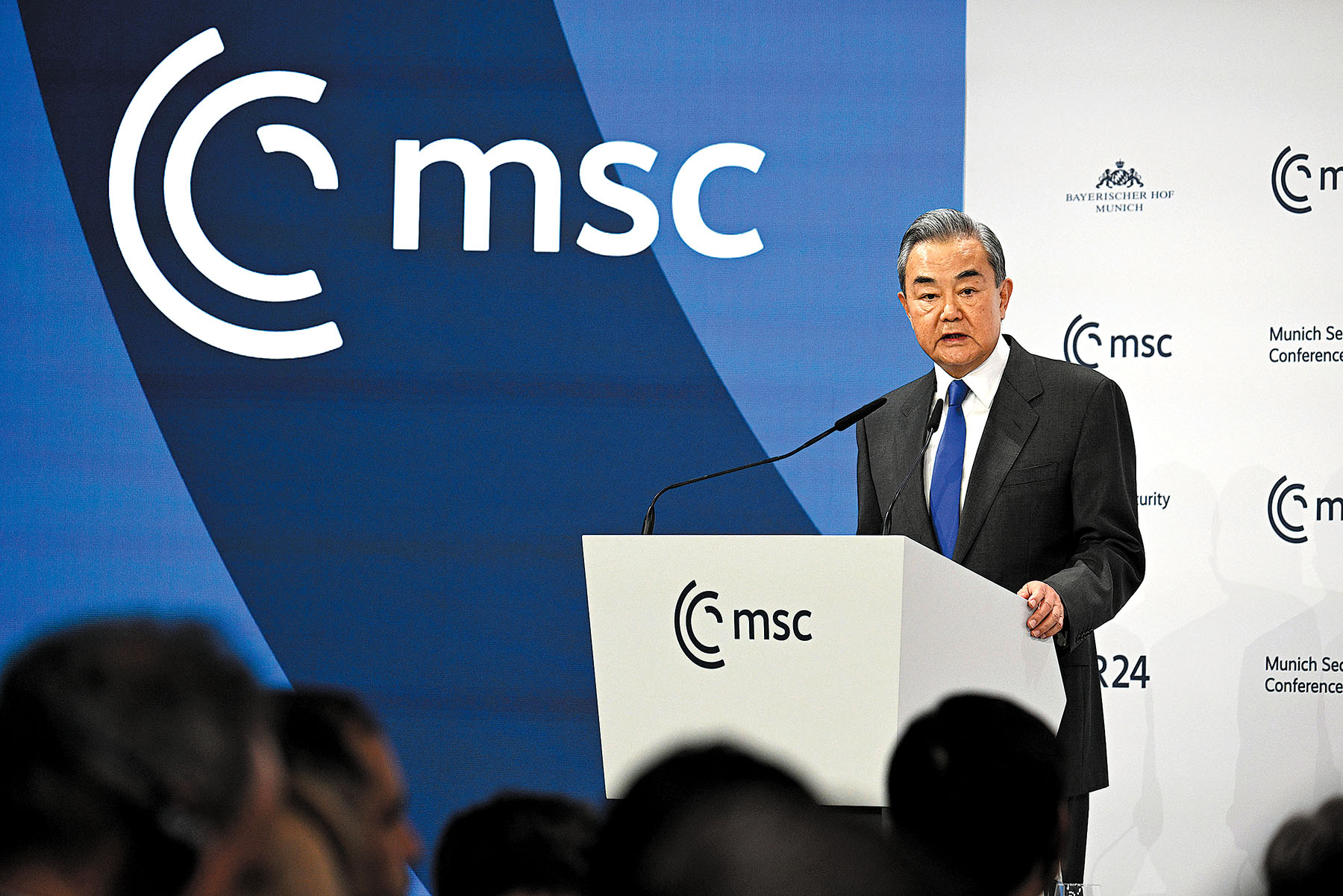Experts commend consistent stance on advocating dialogue over confrontation

Editor's note: As the Russia-Ukraine conflict enters its fourth year, its ripple effects continue to shape global geopolitics, economies, and everyday lives. This page examines the evolving dynamics of the conflict, the diplomatic efforts for peace, and the shifting sentiments on the ground.
As global efforts to negotiate a settlement on the Ukraine crisis gain momentum, experts commend China's persistent peace efforts as a responsible major country, underscoring the need for patience and the inclusion of all parties' concerns in the peace talks.
As the Russia-Ukraine conflict reaches its third anniversary, attention is turning to its future trajectory. Last week, the United States and Russia held talks in Riyadh, Saudi Arabia, in an effort to address the conflict — though without the participation of Ukraine or European countries.
During a meeting with Ukrainian Foreign Minister Andrii Sybiha in Munich, Germany, on Feb 15, Chinese Foreign Minister Wang Yi said the evolving situation reaffirms that the principles proposed by President Xi Jinping, including the four points on what must be done, are objective, fair, rational and pragmatic.
READ MORE: G20 urged to uphold peace and security
Wang also emphasized China's commitment to playing a constructive role in promoting a political settlement and lasting peace, while Sybiha expressed appreciation for China's balanced stance and its diplomatic influence.
Zhang Hong, a researcher at the Institute of Russian, Eastern European and Central Asian Studies of the Chinese Academy of Social Sciences, said China's proposals for resolving the conflict were initially not well received.
"However, after three years, all sides have recognized the negative effects of Cold War mentality. They now realize that zero-sum games and bloc politics only harm regional stability," Zhang said.
China's consistent stance on the Ukraine crisis demonstrates its rational approach to international affairs, addressing problems at their roots, he added.
Wang Shuo, a professor at Beijing Foreign Studies University's School of International Relations and Diplomacy, described the Ukraine crisis as a typical security dilemma.
"China maintains that peace can only be achieved through dialogue, not warfare," he said. "Its position is consistent and has stood the test of time, and the current situation is indeed evolving in that direction."
After last week's US-Russia talks, Kremlin adviser Yuri Ushakov reported "positive" progress, with both sides agreeing to consider each other's interests. However, Ukraine and Europe expressed dissatisfaction at being sidelined in the negotiations.
Ukrainian President Volodymyr Zelensky said Kyiv would not accept results excluding Ukraine, while German Chancellor Olaf Scholz emphasized continued support for Ukraine and reiterated that "there must be no decision over the heads of Ukraine".
Committed to peace
Chinese Foreign Ministry spokesman Guo Jiakun expressed China's support for all efforts committed to peace. "We hope all parties concerned and stakeholders will take part in the peace talks process at an appropriate time," Guo said.
Zhang said resolving the crisis requires considering the positions of Europe and other involved countries, as the conflict is fundamentally a geopolitical crisis in Europe.
"Reaching a consensus accepted by all parties could be a long process, one that requires patience and rationality," he said.
Wang Shuo warned that excluding European stakeholders from peace negotiations would not ensure lasting security for Europe, as it cannot resolve the distrust and hostility between Russia and the rest of Europe, potentially leading to renewed conflict.
Given the lack of mutual trust among the conflicting parties, China could play a bigger role in facilitating peace talks, he added, highlighting China's consistent advocacy for rational and impartial views since the outbreak of the conflict.
In the past three years, China has been actively engaged in diplomatic mediation, maintaining contact with relevant parties.
At the recent Munich Security Conference in Germany, Wang Yi met with leaders and diplomats from France, Germany, Ukraine, the European Union and NATO.
ALSO READ: Europe urged to improve China ties
Last year, China partnered with Brazil to form the Group of Friends for Peace, leveraging the collective wisdom of the Global South to promote peace.
On the first anniversary of the conflict, China issued a 12-point position paper, reaffirming its consistent stance and emphasizing the need to resolve the conflict through dialogue and negotiation.
"The West, at that time, criticized this position paper for lacking specific solutions or clear statements," Wang Shuo said. "But China has consistently expressed its willingness to promote a peaceful resolution when conditions are ripe."
China's recent diplomatic efforts and the Group of Friends for Peace are some of the concrete steps taken to implement the 12-point proposal, he said.
"China's commitment to peace isn't just talk. It's taking concrete actions and moving forward as conditions allow. The approach is consistent and genuine."
Agencies contributed to this story.


